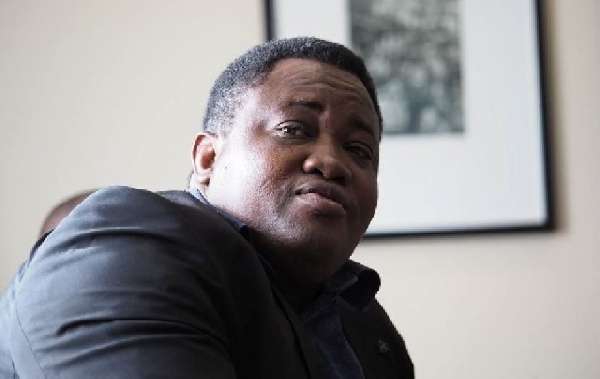Development economist, Dr Michael Ayamga Adongo, has revealed that the decision by government to stay on the path of borrowing has limited it from moving from taxation to production.
According to him, government felt complacent in its handling of matters when it took over from the previous administration. He stated that it considered the “goodwill” that the country was enjoying at the time, as Ghana had just come out from an IMF programme.
“The hindrance has been that the government chose a borrowing path as we have always said. When it took over the reins of power, it did not immediately launch a program to increase domestic production and to make businesses profitable, and from that angle, get the resources to develop…”
Dr Michael Ayamga Adongo
Justifying his stance, Dr Adongo indicated that at the time the previous administration went in for the IMF bailout, the NDC administration had succeeded in turning the fundamentals in the right direction in terms of employment, inflation and growth.
To this end, he explained that such indicators created some interest in Ghana because it seemed to have weathered the storm of the energy crisis and people saw it as a safe destination to invest.
“Our Eurobonds were flying and being oversubscribed, all the financial institutions wanted to lend to us. So, government with a lot of slogans, did not actually take lot of time to convert these slogans into policies that will rightly link to our systems and capacities, but chose a borrowing path.”
Dr Michael Ayamga Adongo
Commenting on calls by some economists in the country on the need for government to avoid imposing taxes in the 2024 budget, Dr Adongo corroborated the position.
He noted that due to crippling environment for businesses to thrive, there are undue pressures on them to pay their taxes when most of taxable Ghanaians are operating outside the tax net.
“I can’t disagree with the various positions held by Andani and Prof Peter Quartey… From our own investigations and observations, businesses are crushing under taxes, and it doesn’t matter what we do if we do not address tax burden of businesses.
“There is no way we can revive the real sector, bring the growth and the government benefitting from the taxes. Companies pay taxes from their profits and if they are not profitable, you don’t get the taxes.”
Dr Michael Ayamga Adongo
Ensuring compliance in tax collection
Furthermore, Dr Adongo expressed that overtime, government has focused on imposing taxes, “writing on paper and telling the IMF” the country has imposed new taxes it is expecting to rake some revenue from. With this, he stated that it only forms the policy aspect of it, while the practicality of it has remained a challenge.
“That’s why so far, with all the millions we are getting from the IMF, we are getting marginal changes in the economy. That is because we have failed to address the crippling challenges in the real sector. I think that if we want to revive this economy, there are two things we need to do. First, we have to enforce the tax code.”
Dr Michael Ayamga Adongo
Also, Dr Adongo contended that there are big businesses operating without being taxed and find their way around the system. Contrarily, he stated those who are actually unable to avoid taxes are civil servants who receive their salaries with taxes already deducted upfront.
“… If the economy has to rebound, it has to depend on real sector and industries, and I think that what the minister ought to be doing is to ensure we go for enforcement rather than increases. You talk to businesses, and they think that a reduction of taxes with the region of 10% to 15% is what is required to make them competitive.
“Now, to the effect that given the challenges that the country is facing, and so far, our inability to meet the IMF deadline for second tranche, I expect the government to come in hard, probably with some additional taxes or some clever ways of increasing the taxes on the already compliant small groups.”
Dr Michael Ayamga Adongo
Meanwhile, the development economist expressed the need for government to ensure that those that already in the system are paying the taxes. This he stated, is because if government pursues enforcement, there’ll be no need to increase taxes.
READ ALSO: VALD Calls For Tax Increment On Tobacco























